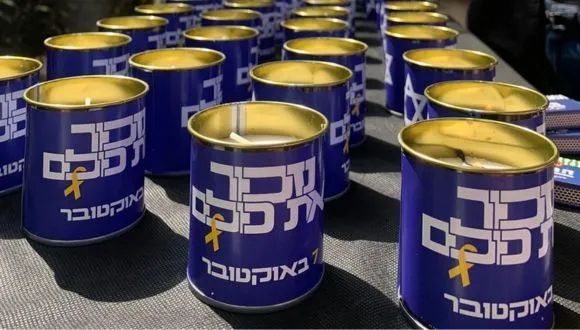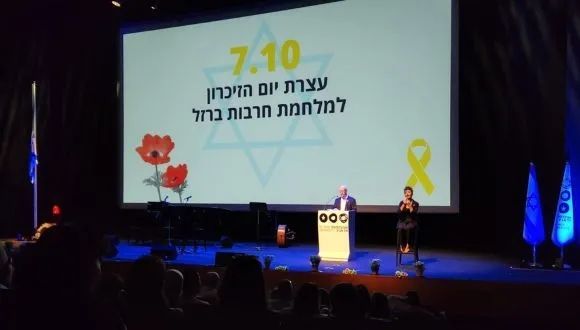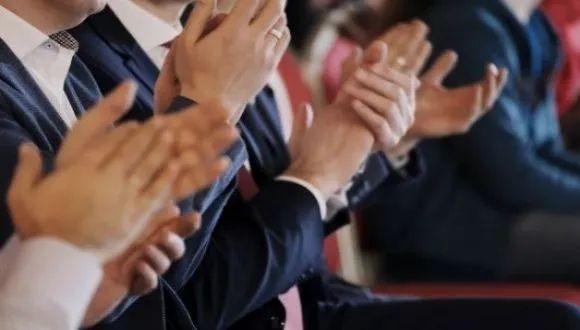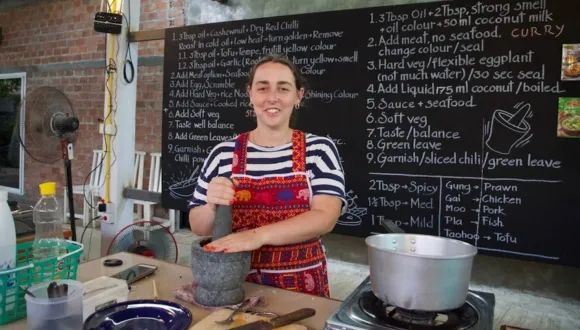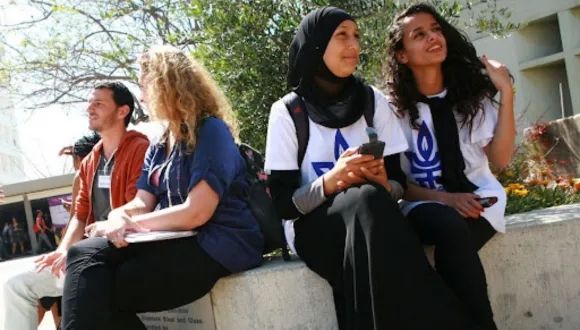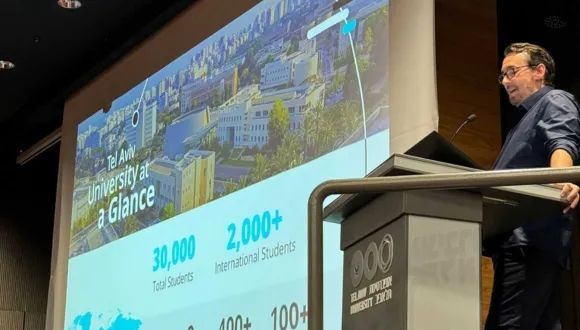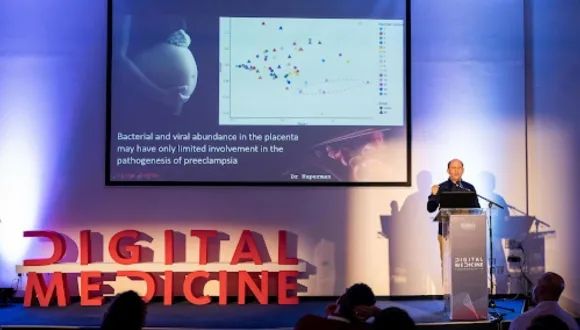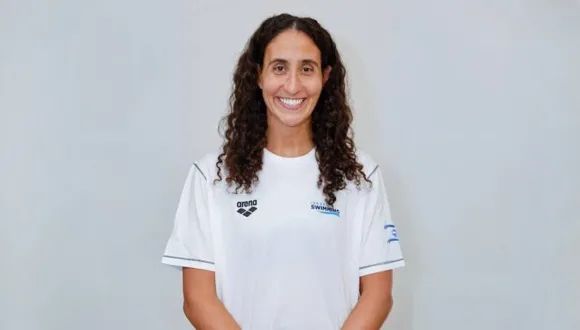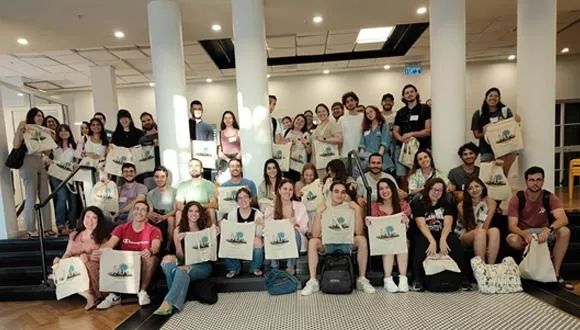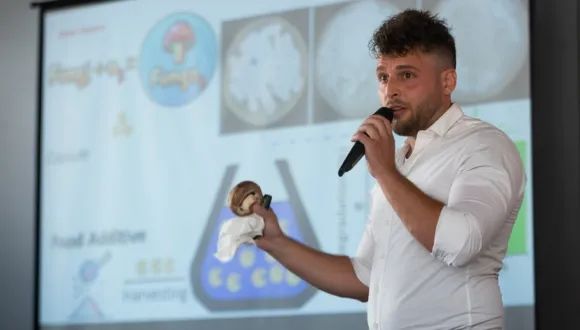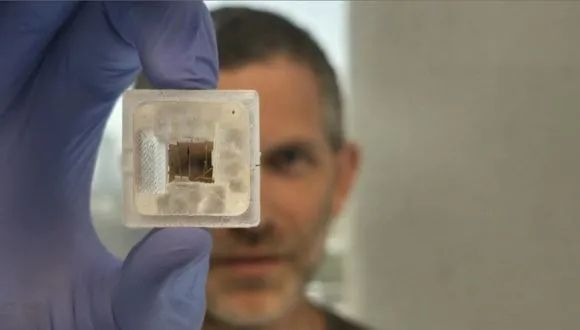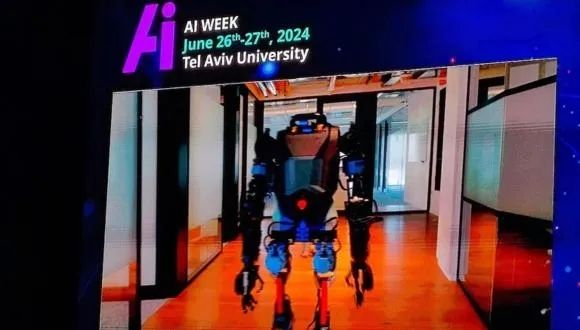
“By October, a War Was Happening And I Was Covering a War.”
TAU international graduate thrust into the heart of national drama while working on Israeli TV.
Dheekshi Arvind, a graduate of Tel Aviv University’s MA in Security and Diplomacy program, began working as an associate producer at i24, an Israeli English-language TV channel, in September 2023, right after completing her degree. She initially took the job “to be politics-adjacent and cover news and politics in Israel and the Middle East,” as she put it, not knowing that just a month later, she would be covering one of the most significant events in recent Israeli history: the outbreak of war in October 2023.
“I was off work that morning, and I clearly remember hearing a loud boom. I thought it was just construction outside my apartment,” she recalls.
“Then my roommate banged on my door, telling me to get out because of the sirens. I couldn’t piece it together—it was so early in the morning.”
Upon realizing that Tel Aviv was under rocket attack, Arvind rushed to work. “We had a group chat at i24 where we got news before it’s broadcast. Suddenly, I was seeing updates about rockets from Gaza hitting Tel Aviv. I got a notification from the group chat: ‘We need you to come in now because we need to cover this.’”

Dheekshi Arvind at the TAU graduation ceremony in 2023
At first, Arvind was hesitant, questioning whether it was safe to go to work. “I remember asking people if they were staying at the job or leaving,” she says. “But my producer told me, ‘We’re journalists. We have to tell people to stay at home, but we come in for work. This is our job—covering the news is what we do.’”
And cover it they did. “That shift was a frenzy. Everyone was doing everything. Social media was blowing up, and we had so much content to post and share with the world.”
Personal and Professional Challenges
Covering the war proved to be not just a professional challenge but also a deeply personal one. Some of the October 7 victims were younger than Arvind and some of her friends were actually at the NOVA festival and had just left that morning to go somewhere else before Hamas came in.
Arvind admits that it was difficult to process the raw footage and the information that came into the newsroom. “Seeing the footage that doesn’t make it to TV and knowing what’s actually happening on the ground—it’s hard to detach and just look at it from a research perspective.”
“There were so many times where I would sit with my producer—I just couldn’t handle or digest what was happening or my reaction to what I was seeing.”
The experience highlighted the complexity of the conflict she had studied during her degree at TAU and the challenge of conveying its nuances to a global audience, much of which viewed the situation through a polarized lens. What frustrated her most was the delayed international response. “People had access to the information, but no one said anything. It wasn’t until Israel retaliated that people started posting on Twitter and social media.”
She also felt disheartened by the oversimplified narratives that dominated discussions. In response, she wrote a blog post challenging the reductionist views she encountered. “People assumed I was taking a political side, but all I was trying to do was present a more nuanced perspective. Hamas is a terrorist organization, and I wanted to make that clear while also urging people to see the broader context.”
A Commitment Through Chaos
Working six to seven days a week, often from early morning until late at night, Arvind found the pace exhausting. But despite the pressure, she remained committed.
Arvind worked at i24 for nearly a year before returning to California, where she had previously completed her BA in political science at UCLA. As Israel’s only English-language news channel, i24 played a crucial role during the conflict. With many producers called up to serve in the Israeli army, the remaining team faced mounting demands.
“I knew I had to stay. We needed all hands on deck,” Arvind recalls. “People who had worked there for years were suddenly gone.”
“I’d made a commitment to myself, to the team and the channel, and I wanted to see it through.”
Her experience working with a diverse team of colleagues, including Palestinians, added another layer of complexity. “I worked with Palestinians when the war broke out, and it was fascinating to see that the common denominator wasn’t ethnicity or religion—it was people’s experiences and perspectives. The narrative isn’t as black and white as people make it out to be.”
“I don’t know how I got through it, but I did. And looking back, I’m glad I did.”
Related posts

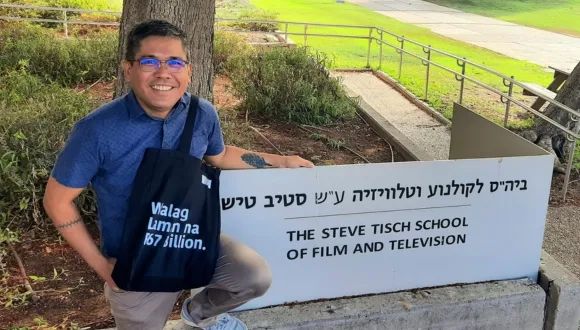
“I Applied to Several Universities, But TAU’s Documentary Film Program Stood Out”
